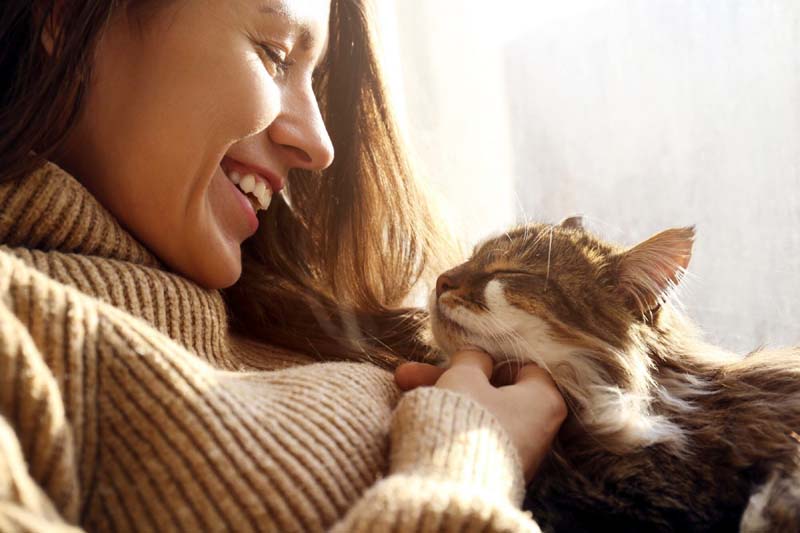![[feature] Four Reasons Why Your Cat Purrs](https://blogger.googleusercontent.com/img/b/R29vZ2xl/AVvXsEhdkNImhtLoidZpWYTxQhKUK1OLBw316RkhMgl2HSzBYiZkgNcg93FAV7vBWWCsM5qgBsxL__Enzgq-GjVZgWwaRKZ_kz90Gwxk4eqjviN7SfZq5wxRtYwidHxsQfjtezMDdIf38wAsGejr/s16000-rw/cake.dearjulius.com.jpg) |
| © Getty Images |
By Roxanna Coldiron, Martha Stewart
One of the hallmarks of a happy cat is gentle purring as she sleeps soundly in your lap. We love the rhythmic sound and vibrations that signal contentment. But there are several reasons why cats purr, some of which may surprise you. And it all depends on their age, stage of development, and other contributing factors.
Here, we spoke with Hyunmin Kim, director of community medicine at The American Society for the Prevention of Cruelty to Animals (ASPCA), to learn more about our feline friends and their tendency to purr.
See more at Martha Stewart
One of the hallmarks of a happy cat is gentle purring as she sleeps soundly in your lap. We love the rhythmic sound and vibrations that signal contentment. But there are several reasons why cats purr, some of which may surprise you. And it all depends on their age, stage of development, and other contributing factors.
Here, we spoke with Hyunmin Kim, director of community medicine at The American Society for the Prevention of Cruelty to Animals (ASPCA), to learn more about our feline friends and their tendency to purr.
Natural-Born Instinct
Cats are born for this behavior. "Kittens learn to purr when they are just a couple of days old. Purring starts in a cat's brain," Kim says. "A 'neural oscillator' signals movement of the laryngeal muscles which opens and closes the glottis, resulting in separation of the vocal chords and a purr sound as air hits the vibrating muscles." Their genetic makeup includes the necessary body parts for them to be able to purr whenever they need to communicate with their mother, heal their injuries, or exhibit their contentment.Communication
"Purring is a form of non-verbal communication, a way for cats to self-soothe, and manage pain," explains Kim. "Purring allows deaf and blind newborn kittens to start communicating with their mom and litter mates." A mother cat knows that her kittens need attention or they are hungry; in this instance, purring allows for the survival of the kittens when they are at their most vulnerable and unable to care for themselves. But how should we respond when our cats are purring towards us (their human caretakers)? "Purring should trigger that a cat is trying to communicate," she says. "To figure out the communication, you need to look at their behavior and try to sense their mood." Since it's a means of self-soothing, your cat may also purr in stressful situations.Happiness
It's true that cats will purr when they are happy and content. Since purring is a soothing sound that they made ever since they were kittens, a contented adult cat will engage in some purring when she is relaxed and happy around her owner—either sleeping in your lap or enjoying your gentle petting. Cats that aren't happy with this interaction will give a warning nip or scratch, or simply stand up and walk away.Internal Healing
The power of purring is that it can also aid in healing. How does this work? "Purring results in low frequency vibrations at 25 and 150 Hertz and is thought to be a natural healing mechanism. Purring can help repair bones, heal wounds, and even relieve pain," says Kim. Maybe you've felt the healing power of purring when your cat sat on one of your aching joints or sore abdomen. According to research, our bodies respond to sound as well, with frequencies of 25 to 50 Hertz affecting our bones and 100 Hertz affecting our soft tissues. Vibrational medicine or sound therapy is a new field that studies how vibrations can aid in regenerative healing in humans. So, it makes sense to us that feline purring has healing properties.See more at Martha Stewart

























